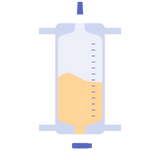
Appendicitis: Types, Stages, Causes, and Treatment
Posted by Pankaj Dhiman on Feb 15th 2024
Appendicitis is a medical emergency that occurs when the appendix becomes inflamed, causing severe abdominal pain. It requires prompt medical attention to prevent serious complications such as a ruptured appendix. In this comprehensive guide, we will explore the types, stages, causes, and treatment options for appendicitis to help you understand this condition better.
Types of Appendicitis:
- Acute Appendicitis: This is the most common type and occurs when the appendix becomes suddenly inflamed, leading to intense abdominal pain. The pain typically starts around the navel and gradually shifts to the lower right abdomen.
- Chronic Appendicitis: In some cases, the inflammation of the appendix may persist over a longer period, resulting in chronic or recurrent episodes of abdominal pain. This type of appendicitis may be more difficult to diagnose as the symptoms may come and go.
Must Read: Sebaceous Cysts: Symptoms, Causes, Diagnosis, and Treatment
Stages of Appendicitis:
- Early Stage: Symptoms in the early stage may be mild and include dull pain around the belly button that gradually moves to the lower right abdomen. Other symptoms may include loss of appetite and mild nausea.
- Middle Stage: As appendicitis progresses, the pain becomes more intense and localized in the lower right abdomen. Nausea, vomiting, and a low-grade fever may also occur. The pain may worsen with movement or coughing.
- Late Stage: Without prompt treatment, the appendix may rupture, leading to severe complications such as peritonitis, which is inflammation of the abdominal lining. Ruptured appendicitis requires immediate medical attention and can be life-threatening.
Must Read: What Is IV Therapy? Benefits Of IV Drips and Where to get
Causes of Appendicitis:
The exact cause of appendicitis is not always clear, but it is often associated with blockage of the appendix. This blockage may be due to fecal matter, a foreign body, or rarely, a tumor. The blockage leads to inflammation and bacterial overgrowth, resulting in infection and swelling of the appendix.
Symptoms of Appendicitis:
- Abdominal Pain: The primary symptom of appendicitis is severe abdominal pain, often starting around the navel and then moving to the lower right abdomen. The pain may worsen with movement or coughing.
- Nausea and Vomiting: Many people with appendicitis experience nausea and vomiting, which may worsen as the condition progresses.
- Fever: A low-grade fever is common with appendicitis, indicating an underlying infection.
- Loss of Appetite: People with appendicitis may experience a loss of appetite and may not feel like eating.
- Changes in Bowel Habits: Constipation or diarrhea may occur, although this is less common.
Must Read: Cervical Pain: Causes, Treatment, and Prevention
Diagnosis of Appendicitis:
Diagnosing appendicitis often involves a combination of medical history, physical examination, and diagnostic tests. Your doctor may perform tests such as ultrasound, CT scan, or MRI to confirm inflammation of the appendix and rule out other potential causes of abdominal pain.
Treatment Options:
- Appendectomy: The most common treatment for appendicitis is surgical removal of the inflamed appendix. This can be done through traditional open surgery or minimally invasive laparoscopic surgery.
- Antibiotics: In some cases, particularly if the appendix has not ruptured, antibiotics may be prescribed to reduce inflammation and prevent infection. However, antibiotics alone are not usually sufficient to treat appendicitis and may only be used as a temporary measure.
- Pain Management: Medications such as acetaminophen or ibuprofen may be used to alleviate pain and discomfort associated with appendicitis.
Must Read: 12 Best Selling Wound Care Products in US
Prevention:
While appendicitis cannot always be prevented, there are some steps you can take to reduce your risk:
- Maintain a Healthy Diet: Eating a high-fiber diet can help prevent constipation and reduce the risk of appendicitis.
- Stay Hydrated: Drinking plenty of water can help keep your digestive system healthy.
- Seek Prompt Medical Attention: If you experience symptoms of appendicitis, such as severe abdominal pain, nausea, and vomiting, seek medical attention immediately.
In conclusion, appendicitis is a serious medical condition that requires prompt medical attention. By understanding its types, stages, causes, and treatment options, you can be better prepared to recognize the symptoms and seek appropriate care. Remember, early intervention is key to preventing serious complications and ensuring a speedy recovery.





























































